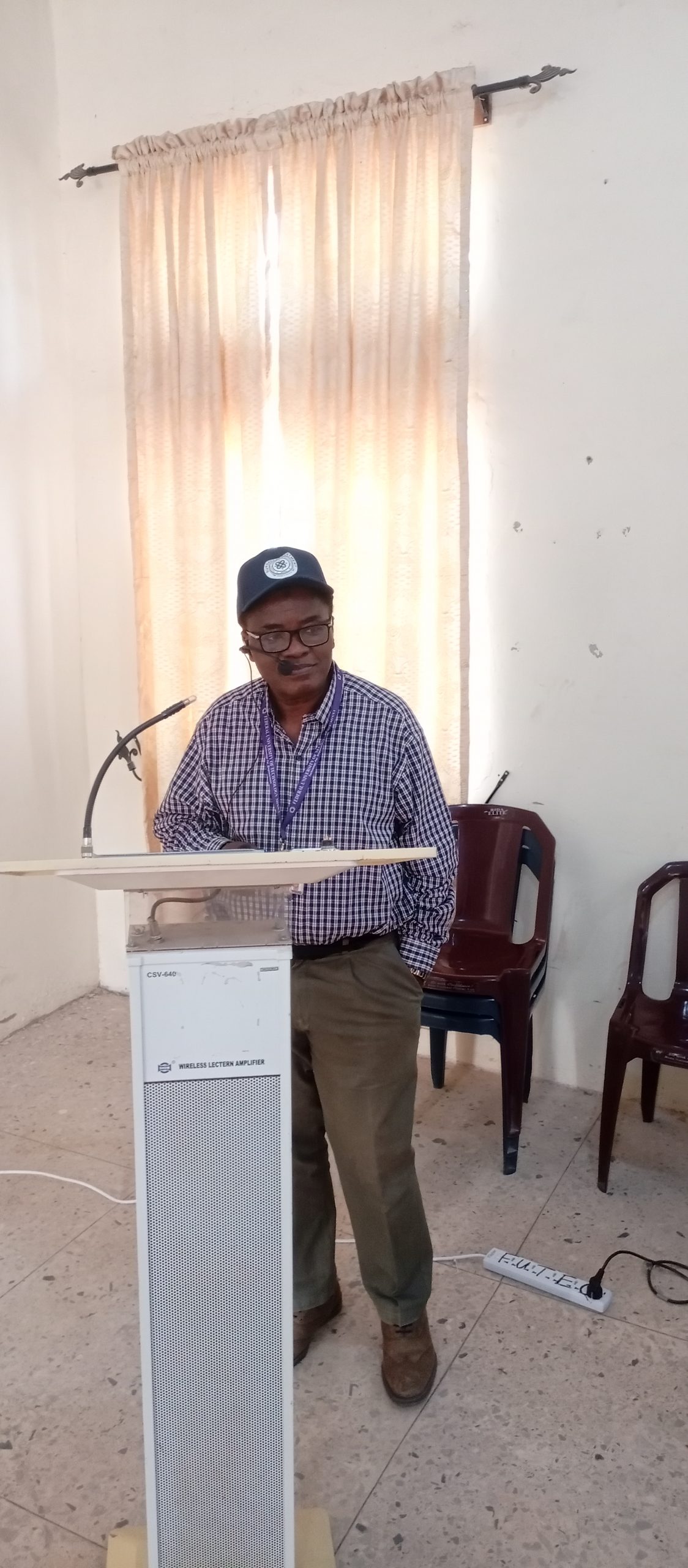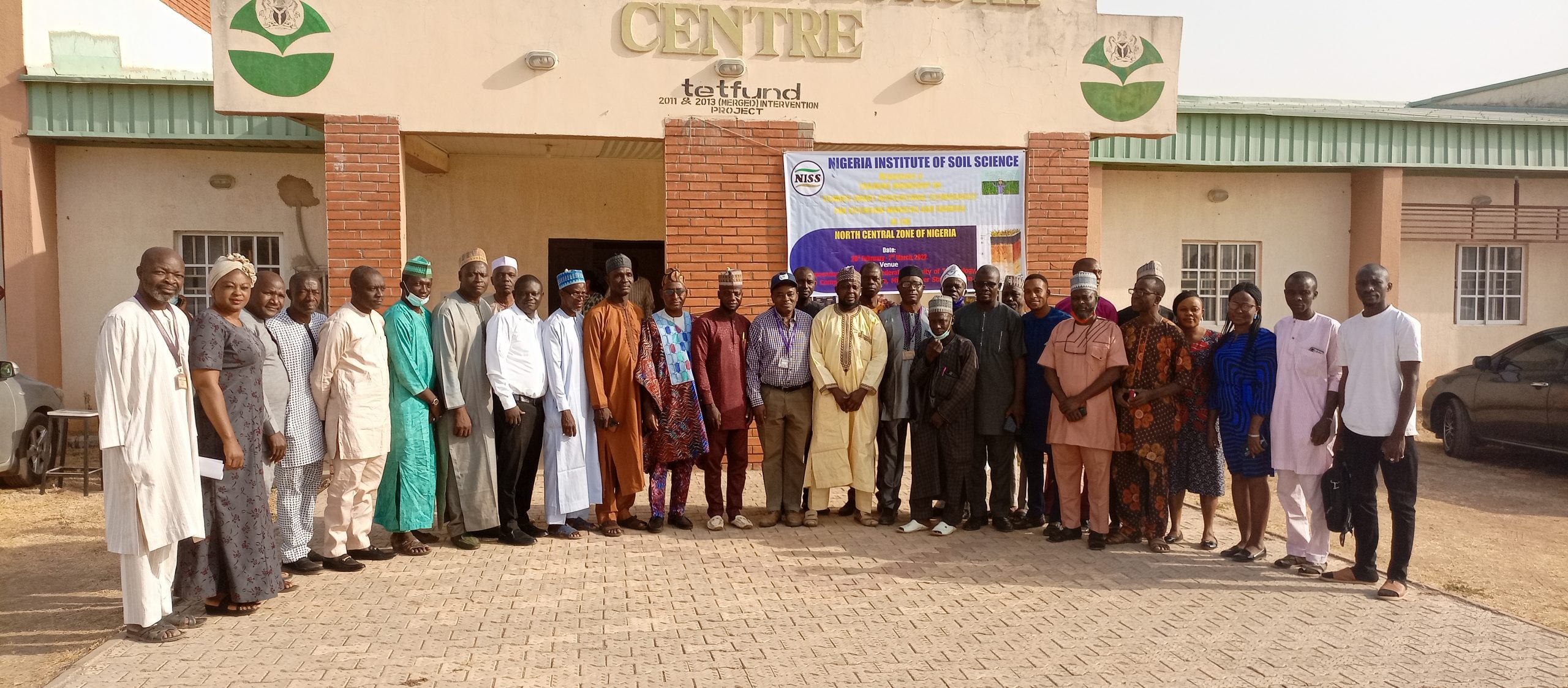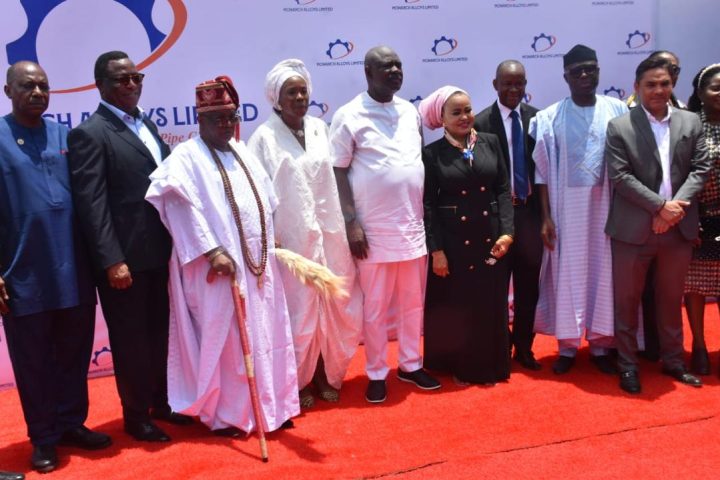As part of efforts to reduce environmental impact, the Nigerian Institute of Soil Science (NISS) has advised farmers and extension agents to adopt climate-smart agricultural technologies to boost food production for the nation’s teeming population.

Join our WhatsApp Channel
This advice came from the Coordinator, NISS North Central Zone, Prof. Akim Osunde, FSSSN, RSS, during a one-day workshop for some selected farmers and extension workers in the North Central zone of the country held on Tuesday, March 1, 2022 at the NISS Zonal Office in Minna, Niger State, Nigeria.
Prof. Osunde stated that the adoption of climate-smart agriculture by farmers would increase productivity from existing farmland, reduce environmental impact and support rural economies.
“Recent projections by the United Nations indicate that the global population will reach nine billion by 2050 and may surpass 10 billion by the end of the century, with Asia (4.60b) and Africa (3.57b) topping the population ladder. Consequently, the demand for world agriculture output will grow exponentially over the coming decades. In order to feed the growing global population, agriculture will need to undergo a significant transformation.
‘’Presently, many of our current farming practices (land use change, cultivation methods, deforestation, bush burning, and land clearing) damage the environment and are the major source of anthropogenic greenhouse gas (GHG) emissions,” he said.
The doyen of Soil Science and Land Management described climate-smart agriculture as agricultural practices that sustainably increase productivity, system resilience, reduce mitigation, and enhance achievement of national food security and development goals.
The NISS Zonal Coordinator listed water management, afforestation programme, tillage management, integrated nutrient management, and improved agronomic practices as some of the management practices for climate-smart agriculture.
Delivering the workshop’s keynote address, the Project Manager/Managing Director, Niger State Agricultural and Mechanization Development Authority (NAMDA), Alh. Sulaiman Al-Mustapha Rijau commended the NISS for organizing the workshop for farmers and extension workers, adding that the workshop would expose them to the concept of climate change resilience, effects of climate change on the environment, climate-smart agricultural methods for maize and rice production.
The Project Manager, NAMDA stated that farmers need to practice regenerative agricultural technologies such as using cover crops, using organic manure, mixed cropping, and reducing soil disturbance (zero tillage).
Other topics discussed by resource persons at the well-attended workshop include climate change impact on soil adaptation and coping strategies, climate-smart agriculture: soil management practices for maize production, soil and water conservation practices, and climate-smart agriculture technologies for rice production in the North Central zone of Nigeria.
According to the media Assistant to the Coordinator of NISS in the North Central Zone, Mr Ugboaja Stanley, the participants also visited the Songhai Integrated Model Farm in Minna, to get first-hand information on modern farming techniques.



















Follow Us